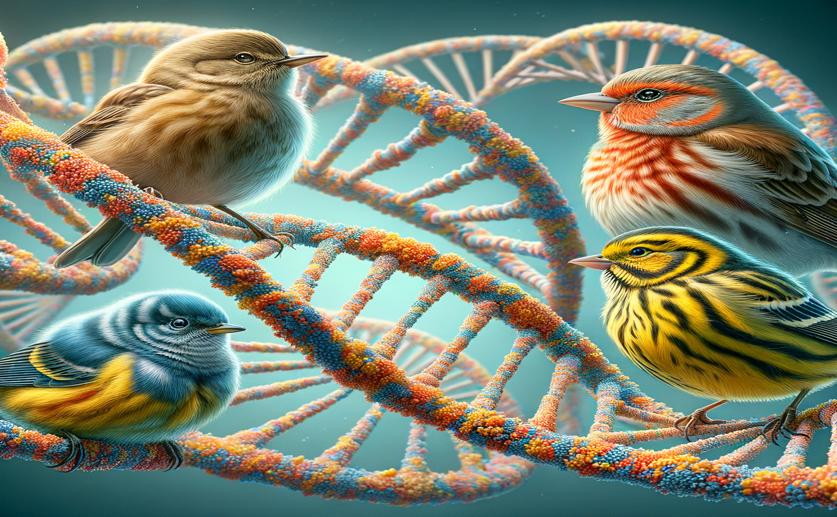
How DNA Methylation Affects Evolution in Songbirds and Their Hybrids
Greg Howard
29th May, 2024

Image Source: Natural Science News, 2024
Key Findings
- The study from Uppsala University focused on DNA methylation in two Ficedula flycatcher species and their hybrids on the island of Öland
- DNA methylation differences between the two species were significant and reflected in their gene expression profiles
- These methylation differences persisted in the F1 hybrids, indicating a role in maintaining species-specific gene expression patterns even in hybrids
GeneticsAnimal ScienceEvolution
References
Main Study
1) Regulatory and evolutionary impact of DNA methylation in two songbird species and their naturally occurring F1 hybrids
Published 29th May, 2024
https://doi.org/10.1186/s12915-024-01920-2
Related Studies
2) Mechanisms of Intrinsic Postzygotic Isolation: From Traditional Genic and Chromosomal Views to Genomic and Epigenetic Perspectives.
3) The genetics of hybrid incompatibilities.
4) Rapid speciation via parallel, directional selection on regulatory genetic pathways.
Journal: Journal of theoretical biology, Issue: Vol 205, Issue 4, Aug 2000
5) Hybrid incompatibility caused by an epiallele.



 2nd April, 2024 | Jenn Hoskins
2nd April, 2024 | Jenn Hoskins